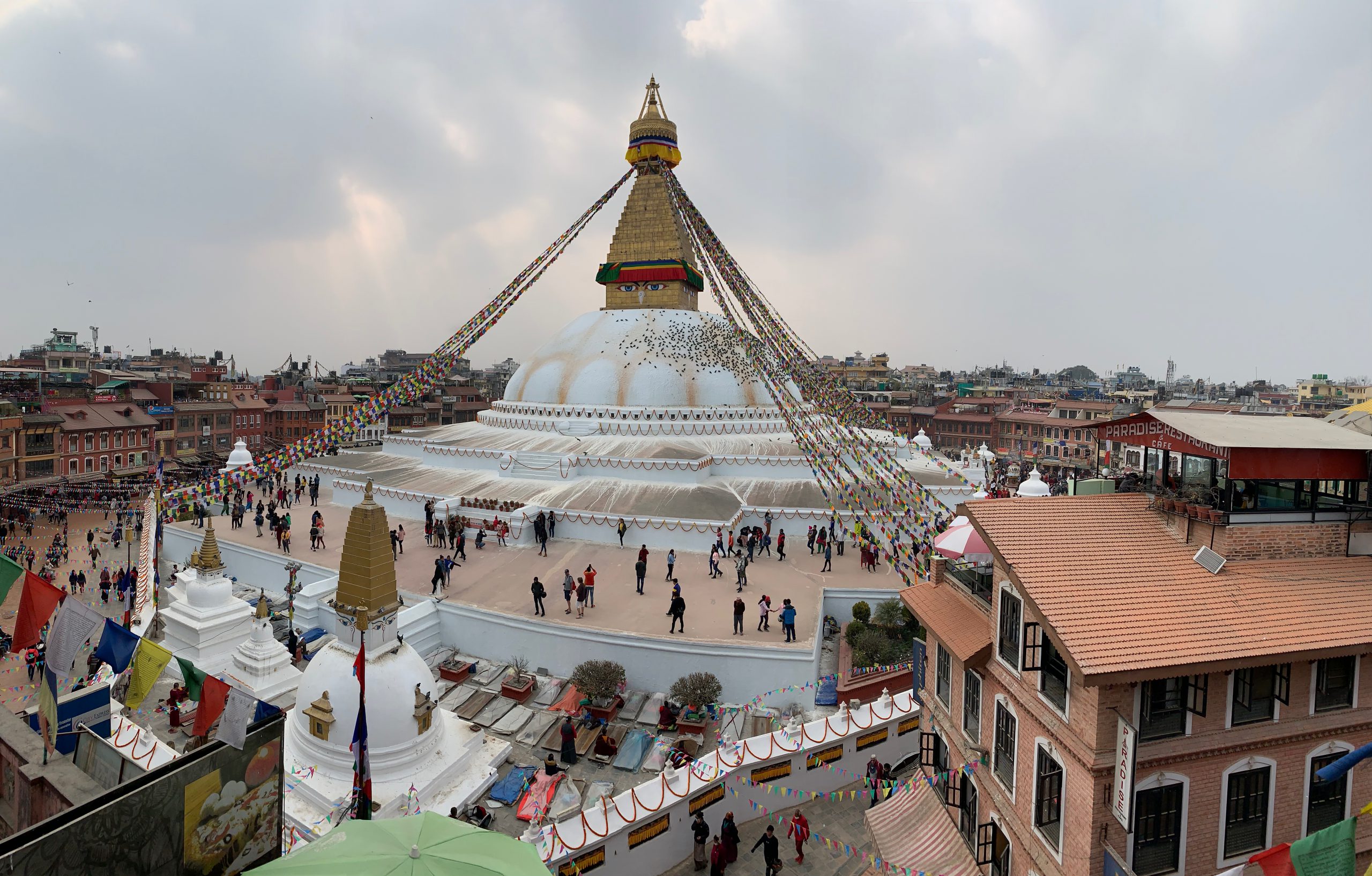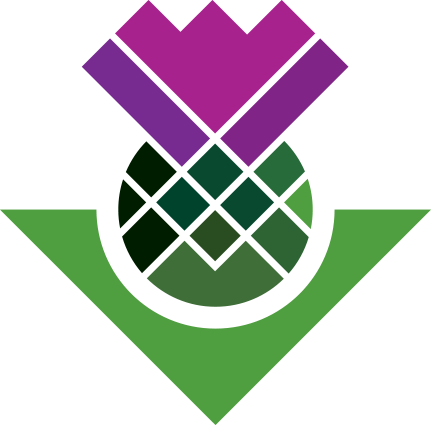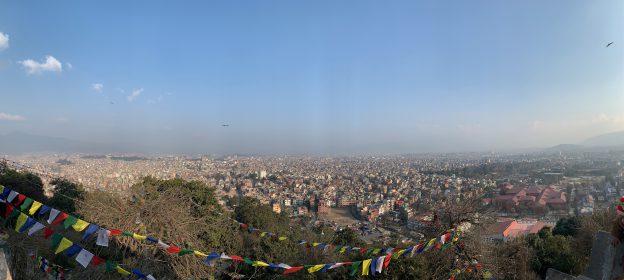Ever since SGSSS started promoting their internship scheme I was gutted when receiving calls for expressions of interest. Pretty much every position focused, understandably, on Scotland while my PhD in human geography focused on international development issues! As such, you can imagine my surprise, and delight, when in early September 2019 I received an email from GradHub advertising an internship with IOD PARC, an international development consulting firm with offices in Edinburgh, Sheffield, and Nepal. The details of the position were limited, but it looked like an amazing opportunity to gain practical experience in a sector I had researching for the past four years! So, I applied, got invited for an interview, and after a very pleasant conversation got offered the position. I was over the moon! Not only was I pumped about what I’d be doing but the work would also involve spending two months at IOD PARC’s Nepal office – which meant getting an amazing opportunity to return to the country where I lived a few years as a kid in the 90s.
From researching institutional resilience…
My internship would revolve around doing a small study around institutional resilience on behalf of one of IOD PARC’s clients. They were keen to find out what we could learn about how the client’s work contributed to institutional resilience in Nepal on the basis of data that had already been collected by/on behalf of the client. So, when I started my internship in January, I quickly set out to do some desk research on institutional resilience and started creating a database in NVivo. After all, the internship was also about using academic skills in a different context.
… to designing research plans
However, not everything went smoothly! Even though the client had expressed a wish for us to analyse their data it was not as easy to actually get hold of the data! Partly things got held up in bureaucracy, and partly it was because some of the data were not actually held by the client but rather by their partners and the more parties that become involved, the slower the progress can be! As much as this was sometimes frustrating, it was also very much a learning experience. It has helped me to understand better how in practice, rather than in theory, collaboration between stakeholders in international development works even in circumstances where everyone wants the same thing! Moreover, it allowed me to get involved with other aspects of IOD PARC’s work in Nepal. For example, I got strongly involved in discussions with our client about the overall research strategy and terms of reference that will shape IOD PARC’s research efforts in Nepal for the next few years.
Working on this with the rest of the team is an experience that I would not want to have missed for anything because it gave me a chance to put my knowledge around research to good use, but also because it felt I was contributing to something tangible. Moreover, it helped me see that research in this context is much more dynamic and responsive to evolving needs than academic work which, once funding is secured, can follow a fairly straightforward and independent path. It also taught me that as PhD students we have a lot of valuable skills in terms of designing and implementing research programmes and critical thinking. Sometimes we might forget this, because we are constantly reading the articles of academic superstars on whose theories and insights we base our work, but in the process we ourselves learn a lot about doing thorough research. All those rejected papers and meetings whereby our supervisors grill us on methodology and methods have very much value in practice, and it was nice to find that out during the course of this internship!

Challenges and chances resulting from COVID-19
Of course, what would a post these days be without reference to COVID-19, right? Well, it surely affected my internship! One morning in mid-March I woke up in Nepal to an email from my PhD supervisor urging me to look for flights as my university was bringing back all overseas PhD students. IOD PARC was very understanding and two days later I was on my way back to Dundee and continued my work from home. At the same time, this also presented opportunities for me to think about research work we could do for our client related to the corona virus. So while the situation was, and is, stressful for all, speaking purely in terms of my internship it did provide interesting opportunities as well. Of course, this does not weigh up to the opportunities to learn in Nepal missed as a result, but let’s try to see the glass as being half-full.
What I learned
Overall, though, my internship experience has been more than a half-full glass. It has been overflowing! I got to work with a wonderful company and people, and even though the internship plans changed, I learned a lot about what working in international development consulting can look like – which is the most valuable lesson I could have learned. Moreover, I got to learn more about myself, what drives me and where my strengths, weaknesses, and ambitions lie professionally. I learned about the need to be adaptive and flexible, and to keep a positive mindset as different challenges come to the fore. Most importantly, perhaps, is that this internship has undoubtedly enriched my PhD experience because I know better what I am talking about when I write about ‘international development’, and that I perhaps need to be a little bit less rigid when assessing actors’ behaviour against theoretical ideals. As such, I would recommend everyone who has the chance to do an SGSSS internship because as much as we might love ivory towers, the world is bigger and these internships are the perfect way to explore it regardless of the path you end up following!


Leave a Reply
You must be logged in to post a comment.